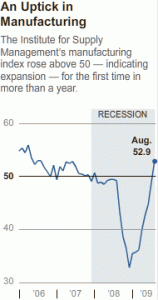Baucus Healthcare Bill Falls Short on Public Option, Employer Mandates, and the Effective Date for the Legislation
In what will certainly be the news of the day, the Senate Finance Committee Chairman, Max Baucus (D-MT), released his version of the national health care reform bill.
Although there are many interesting provisions in the Baucus Bill, including a requirement that individuals have health insurance coverage, the establishment of a health care exchange, proposed reforms for the private insurance system including not allowing exclusions for preexisting coverage, and expansion of the Medicaid program for the poor, I want to focus on three parts that trouble me that directly deal with current employee benefits law.

 From Saturday’s New York Times, Peter Goodman’s
From Saturday’s New York Times, Peter Goodman’s  On Friday, the district court in UMG v. Veoh granted summary judgement in favor of Veoh.
On Friday, the district court in UMG v. Veoh granted summary judgement in favor of Veoh.